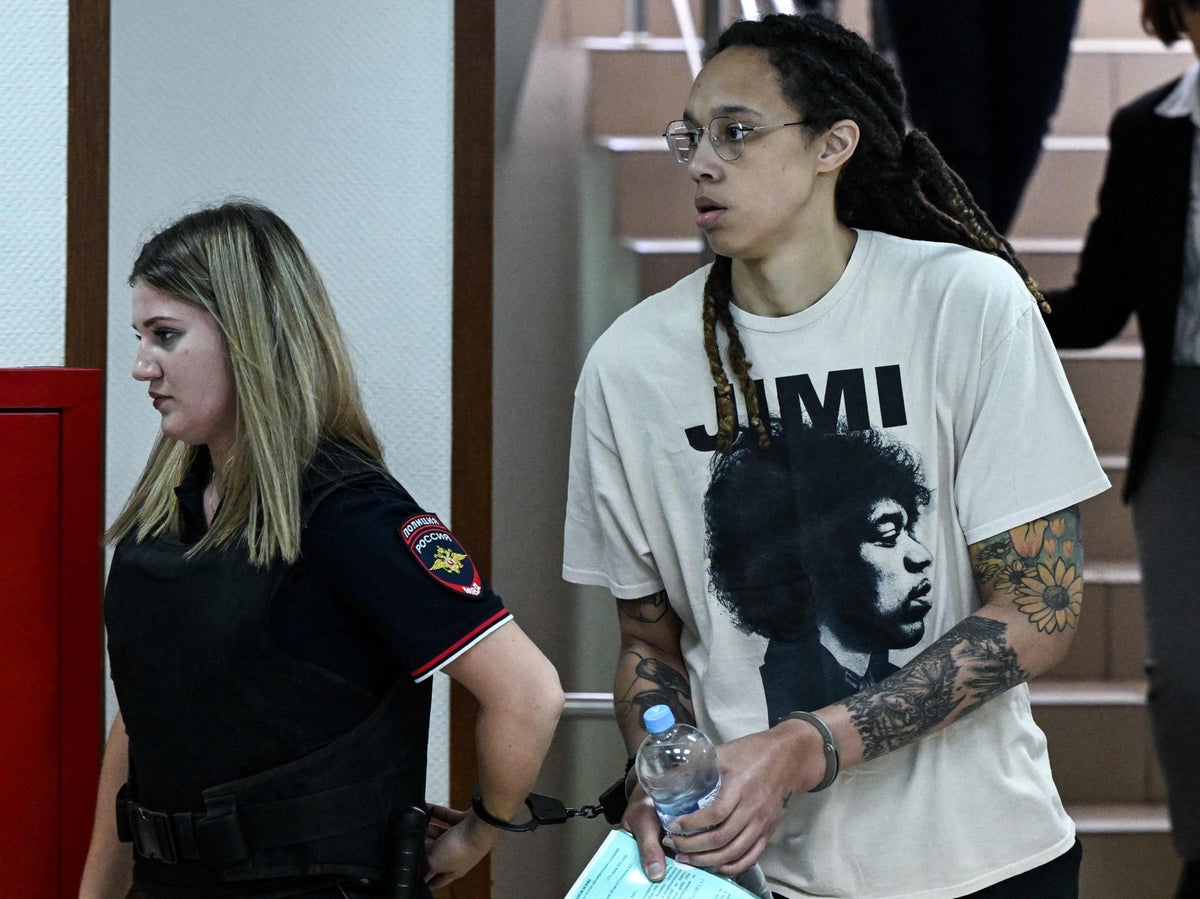
WNBA star Brittney Griner has been sentenced to nine-years in jail in Russia after customs officials discovered contraband in her luggage in February.
According to the Russians, Griner allegedly packed hashish oil in her bag, likely in the form of a vape.
It was that discovery that led to her nine-year sentence, after Griner pleaded guilty in July to charges of smuggling less than a gram of hash oil.
An appeal hearing in Russian court was held on Tuesday. Despite Maria Blagovolina, one of the lawyers representing Griner, arguing that the “punishment imposed on Griner does not correspond to the gravity of the crime,” a Russian court denied Ms Griner’s appeal to reduce her prison sentence.
As she stares down the multi-year prison sentence and potential movement on US attempts to negociate her release, here’s what to know about the substance.
What is hash oil?
Hashish — also known as hash — is a drug made by compressing the parts of a cannabis plant that contains the highest levels of THC. Hash is traditionally associated with Middle Eastern and and Mediterranean cultures, but has been used globally for decades.
Hash oil is, predictably, an "oil" version of hash. The term "oil" refers to the concentrated liquid that is formed when cannabinoids are extracted from the cannabis plant. Consumers usually smoke — or more recently vape — the liquid. Hash oil is available in cartridges and vapes, similar to THC pens and common nicotine vapes.
Is hash oil legal in the US or Russia?
In the US, hash and hash oil — like marijuana — are Schedule 1 drugs. It's still illegal to use and possess hash under federal law, and its legality varies state by state.
In Russia, cannabis is illegal. An individual possessing less than 6 grams of cannabis or two grams of hash can be fined or jailed for up to 15 days. Possessing any more than that becomes a more serious criminal offense.
Griner was accused of having less than a gram.
“Being sufficiently aware that the movement of narcotic drugs is not allowed… no later than February 17, 2022 at an unspecified location under unspecified circumstances from an unidentified person [Ms Griner] bought two cartridges for personal use, which contained 0.252 grams and 0.45 grams of hash oil, totaling 0.702 grams,” the prosecutor said during the trial, TASS reported.
US officials have worried that Griner's arrest is partially politically motivated, providing Russia with a bargaining chip at a time when it and the US are at odds over the war in Ukraine. The Kremlin has roundly denied those allegations, arguing that it was simply enforcing its nation’s narcotics laws.
For now, Griner remains incarcerated. In an interview on CNN on Tuesday, President Joe Biden said that he would consider meeting with Russian leader Vladimir Putin at the G-20 summit if the meeting were set to discuss Griner’s freedom.
“Look, I have no intention of meeting with him,” Mr Biden said. “But for example, if he came to me at the G-20 and said, ‘I want to talk about the release of Griner,’ I’d meet with him. I mean, it would depend.” White House Press Secretary Karine Jean-Pierre later said that Mr Biden believes the Russians “need to take the serious offer that we put forward on the table, or make a serious counter-offer to negotiate, but in good faith.”
Mr Biden told reporters after the denial was announced that the White House was in “constant contact” with Russia about Griner and promised that he would not stop pushing until she was released.
On 9 November, Griner was moved to a penal colony, according to her lawyer.
"We do not have any information on her exact current location or her final destination," her attorneys, Maria Balgovolina and Alexander Boykov told CNN. "In accordance with the standard Russian procedure, the attorneys, as well as the US Embassy, should be notified upon her arrival at her destination. Notification is given via official mail and normally takes up to two weeks to be received."
Lindsay Colas, Griner’s agent, told CNN that the basketball star’s health and well-being were her and the agency’s primary concerns.
Russian penal colonies are known for lacking in hygiene and for forcing inmates to do manual labour.
On the same day, US Secretary of State Antony Blinken commented on Griner’s transfer to the penal colony, calling it "another injustice layered on her ongoing, unjust, and wrongful detention."
As we work to secure Brittney Griner’s release, we expect Russian authorities to provide our Embassy officials with regular access to all US citizens detained in Russia, including Brittney, as is their obligation," he said in a statement on Wednesday. "Ensuring the dealth and welfare of US citizen detainees in Russia is a priority, and we will continue to press for fair and transparent treatment for them all."







